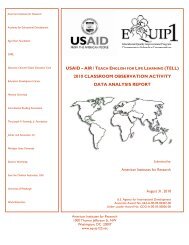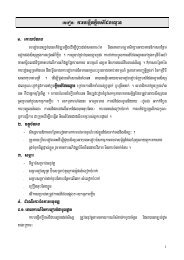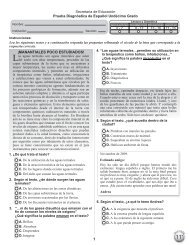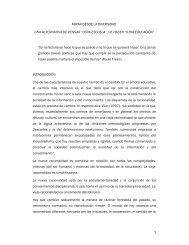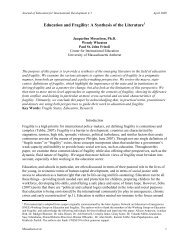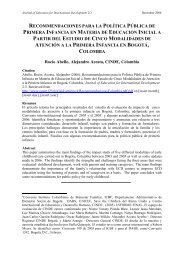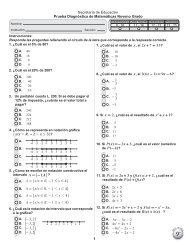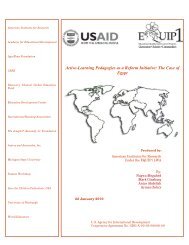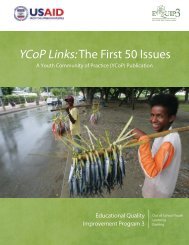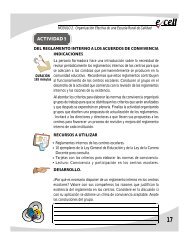The Power of Persistence: Education System ... - EQUIP123.net
The Power of Persistence: Education System ... - EQUIP123.net
The Power of Persistence: Education System ... - EQUIP123.net
Create successful ePaper yourself
Turn your PDF publications into a flip-book with our unique Google optimized e-Paper software.
and demands <strong>of</strong> the Muslim communities. Important policy changes, a<br />
comprehensive national strategy, strong leadership, and active involvement<br />
established an important base for reform within the country’s seven<br />
governorates. Pilot programs have provided evidence that internationally<br />
supported efforts can help build the individual and institutional capacity<br />
needed to implement decentralization and community participation—reforms<br />
that, in 2009, were still at the early stages both at the school level and at scale.<br />
El Salvador has progressed from the devastation and fragmentation <strong>of</strong> civil<br />
war to a country with a remarkably stable national consensus on education,<br />
strong country leadership, and coherent, comprehensive long-term strategies<br />
and plans. Over the past 18 years, El Salvador has systematically put into<br />
place the policy and system infrastructure and institutional capacity needed<br />
for continuing quality improvement—with the result that student learning<br />
outcomes are steadily improving. As well as demonstrating effective and<br />
creative uses <strong>of</strong> information for decision-making, El Salvador has contributed<br />
internationally recognized and duplicated models for school and communitybased<br />
management. As one <strong>of</strong> the foremost examples <strong>of</strong> country-led<br />
development in education, El Salvador provides a model <strong>of</strong> the value <strong>of</strong> a<br />
mature and balanced partnership with donors. With the 2009 elections having<br />
brought the opposition political party into power, the depth and strength <strong>of</strong><br />
consensus as a strategy for sustainable reform will be put to the test.<br />
Namibia has successfully managed 18 years <strong>of</strong> progress to create a functioning<br />
education system out <strong>of</strong> the under-resourced and racially discriminatory<br />
system inherited at the time <strong>of</strong> the country’s independence from South Africa<br />
in 1990. Namibian education reform has benefited from consistent national<br />
leadership while being influenced strongly by the experience <strong>of</strong> school,<br />
district, and regional initiatives and leadership. Many innovations are being<br />
institutionalized on a national scale, such as participatory school improvement<br />
planning, school self-assessment, adaptive circuit support services, onsite<br />
teacher pr<strong>of</strong>essional development, and achievement testing linked to<br />
pr<strong>of</strong>essional development. <strong>The</strong>se reforms were initiated and implemented<br />
in the historically disadvantaged Northern regions where the majority <strong>of</strong><br />
the population lives, and have resulted in the best improvements in learning<br />
outcomes in the country.<br />
In Nicaragua, divisions from the civil conflict in the 1980s have continued<br />
to influence the policies and practice <strong>of</strong> education reform. Without the<br />
consistency <strong>of</strong> strong educational leadership and a common national vision,<br />
Nicaragua’s progress is sporadic and subject to dramatic changes in direction<br />
SECTION 3: SUMMARY fINdINGS ANd CONClUSIONS<br />
135



